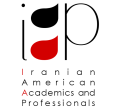“Managing Iran’s Gasoline Supply and Demand”
Thursday Sep. 13, 2007, 7:30 p.m.
Our coming session will be held in the format of a discussion panel. Three distinguished experts in the field of “Oil and Natural Gas” are invited and each lecturer will open discussion ground with a short speech on the following topics:
Historical Background and Outlook
Mr. Mohsen Shirazi
Economics and Pricing
Dr. Cyrus Tahmassebi
Opportunities and Challenges
Mr. Hossein Ebneyousef
Location: Tony Lin’s Kitchen 12015 Rockville Pike # G
Rockville, MD 20852
(301) 468-5858
Get directions Dues: $15 per person, $5 for students (including dinner)
If you plan to attend please send an email to monthlylecture@iaa-dc.org for reservation.
About the Guest Speakers:
Mr. Mohsen Shirazi:
Mr. Mohsen Shirazi has over 40 years of experience in the international oil and gas industries in management, planning, project development, engineering, procurement; gas sales contract negotiations, project economics, and corporate restructuring. He got his B.S in Petroleum Engineering from Abadan Institute of Technology, Iran, in 1956. He has 12 years of experience with the World Bank identifying and appraising oil and gas projects as well as formulating energy sector policy for over 20 countries with emerging economy. Formerly Director of Frontier Projects for the Gas and Gas Liquids Group at Phillips Petroleum Company (1979-1983). Along with a number of key positions in the industry that he held in Iran, served as a Member of the Board and Managing Director of the National Iranian Gas Company (1966-1979). Served as a Chairman of the Gas Committee of OPEC (1975-1977) and as a member of the Council of the International Gas Union represented Iran (1970-1978) and World Bank (1983-1987).
Dr. Cyrus Tahmassebi:
Dr. Cyrus Tahmassebi received his B.S. and M.S. from Brigham Young University in Provo, Utah and his Ph.D. from Indiana University in Bloomington, Indiana. He has served as a member of the National Academy of Science’s Workshop on the Strategic Petroleum Reserve, the U.S. Congress’ Office of Technology Assessments Workshop on the U.S. Oil Production — The Effect of Low Oil Prices, the Advisory Committee of the Johns Hopkins University International Energy and Environment Program, and the Advisory Committee of Energy and Environmental Policy Center at Harvard’s Kennedy School of Government.
Currently, Dr. Tahmassebi is the President of Energy Trends, Inc. and prior to this, he was the Chief Economist and Director of Market Research for Ashland, Inc. During his fifteen-year tenure with Ashland, Dr. Tahmassebi gained international recognition for his oil market forecasts and views on energy-related issues.
Dr. Tahmassebi has a broad-based experience in international oil and natural gas markets. During his 16 years of experience with the National Iranian Oil Company and National Iranian Gas Company, Dr. Tahmassebi was responsible for the economic/feasibility study of multi-billion dollar LNG and pipeline gas export. He also represented Iran in OPEC‘s Gas Committee. Mr.
Hossein Ebneyousef:
Mr. Ebneyousef holds BS and MS degrees in petroleum engineering from Louisiana State University (LSU) and University of Southern California (USC), respectively. Since 1988, Mr. Ebneyousef has been the President of International Petroleum Enterprises where he manages the Company’s worldwide consulting services and technical assistance on oil and natural gas development opportunities in the Middle East, North Africa and the Caspian Sea region. Previously he worked for Atlantic Richfield Company (ARCO) for 14 years — 6 years with ARCO International, on projects in the Middle East; 6 years with ARCO Oil & Gas, on evaluating oil and gas producing properties for time rating of reserves and coordination of legal, geological, engineering, operation and business evaluation efforts towards acquisition or sales of oil and gas properties; and 2 years with ARCO’s Corporate Planning, on identification and analyses of critical global oil-related issues and response strategies.
